Media | Articles
I sold a mediocre car to Carvana for a lot of money, and I don’t feel bad about it
My grandfather-in-law, Jimmy, is a hero.
Like, an actual hero.
He fought as a Marine in World War II and was wounded in the Battle of Guam. He received a Purple Heart and returned home to North Carolina, where he worked his way up to become fire chief for one of the largest cities in the state. He saved lives and protected homes, and in 1967, he personally hired the city’s first Black firefighter.
Like so many from his generation, Jimmy grew up with very little. As an adult, he treasured his cars and kept them in top shape. Ford was his go-to brand, and his most opulent buy was an early 1990s Lincoln Town Car, painted white. He drove this car into his nineties, until family pressure to downsize to something safer and more economical led him to a 2016 Ford Fusion.
Accolades came gushing in: Jimmy, his relatives said, this is a great car! It’s so modern. I know you’re saving some gas. He beamed.
Marketplace
Buy and sell classics with confidence
Comfortable power seats, an FM radio, good visibility, power steering that didn’t take too much strength to use. The infotainment system required virtually zero interaction if you only ever listened to one FM station, and the climate control always stayed at the same setting. It started, it stopped, it was a perfectly mediocre car.
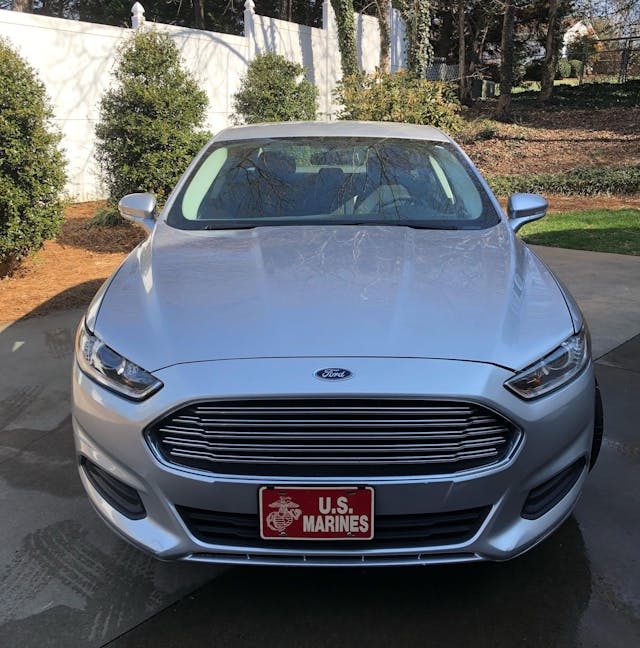
He drove the Ford diligently for a few years. Family gatherings, quick trips to the store or barber shop, things like that. He was proud of it. It was his link to the outside world, his independence.
“I’m gonna run out to the store, I’ll be back later,” he’d say.
His wife of 70 years, Peggy, would quickly make an excuse for him to stay. “Jimmy,” she’d say, confidently, “we went to the store yesterday. We’ve got everything we need.”
Jimmy would return to his chair to watch black-and-white movies. “I remember when this film came out in theaters, just a few years ago.”
“Me too, Jimmy.”
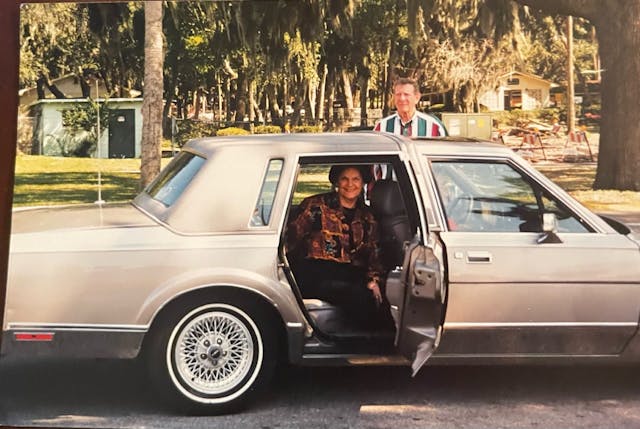
Some days, this daily scenario did not play out so favorably. Some days it was an argument. On the good days, though, a weight seemed to have been lifted for them both. He wouldn’t be worried about groceries, wouldn’t dwell on his sense of independence; she would avoid, one more time, the difficult conversation about why Jimmy should no longer drive.
In the pandemic, the Fusion languished for two years. The battery died and the tires began to show signs of rot. Jimmy’s urge to drive turned into random inquiries about the car, concern for its condition. The Ford became a burden. Unnecessary confusion and stress for him.
It was time.
A family member took the car to Jimmy’s favorite dealership for routine service. This was in January of 2022, when used-car prices were at a historic high. They hadn’t even pulled the Ford into the service bay when an offer came in.
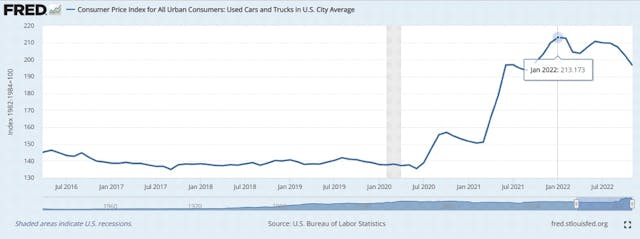
Every family has their designated car person. The one you call when you can’t choose between two seemingly identical yet different models. When you hear a tapping sound on left turns. When you think you’re being overcharged for a sensor that might not even be real. A car decider.
“Hey, they want to give us $13,500 for the Fusion. Like, right now. I think Jimmy only paid like $22,000 for it.”
“Wow. Um, sure. Let’s get this off our plate. And they could use the money.”
I felt good about that number. A private sale would almost definitely bring more, but this way, we could avoid what we feared there: potential buyers coming to Jimmy and Peggy’s place, pointing out every visible flaw in order to get out of paying a veteran as much as they should. And Peggy having to explain to Jimmy why random people were in his house.
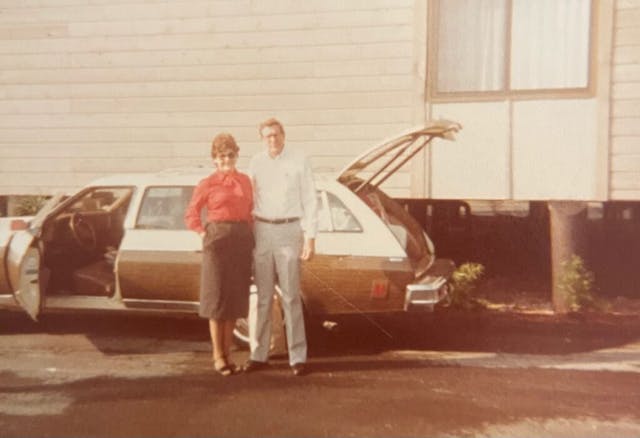
Then, automotive serendipity. An immaculately timed Carvana commercial.
“Wait,” I said.
As I excitedly explained to a family member how this weird and gimmicky company that sells cars from giant vending machines just gave us an instant offer of $19,633 for a Ford that most people wouldn’t give a second look, it felt like overpromising. Not only did it sound as if I was trying to sell them on some kind of multilevel marketing scheme, I had unwittingly taken over the entire endeavor simply because I had seen a TV ad promising “a new way to buy a car.”
Carvana wouldn’t move past the offer phase until they saw a new state title with my name on it. A few weeks, one power of attorney, and lots of overnight mail later, I owned a really boring Ford that I planned to sell immediately. The Fusion was car number six in my driveway, and according to Carvana’s “techno-wizardry,” it was more valuable than a couple of well-kept “you don’t see those every day” BMWs and a supercharged English SUV. A 2016 Ford Fusion—one step up from base trim, not even heated seats—was now my flagship.
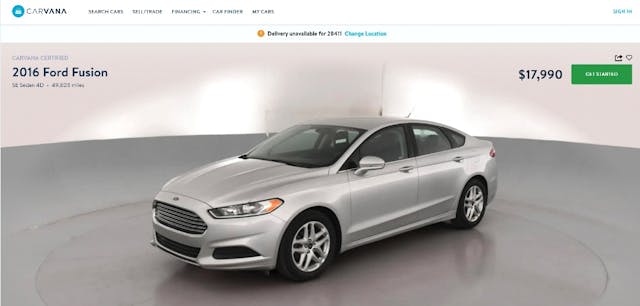
The online process that came next made me feel as if I were trading cryptocurrency or unloading a monkey NFT. It seemed like I had to get this done quickly, before someone found out. Send us a handful of mediocre pics from your phone, the website said, click a few boxes marked “I Agree,” and Jimmy and Peggy will get their money. Save one phone call to schedule the pickup time, I had no live interactions with a human until the day came to hand over the keys.
The truck came from Myrtle Beach, over an hour south, carrying one driver and one trainee. Both were neatly dressed and cordial. They stumbled through an awkward introduction and ID verification, and off we went.
The driver/salesman/inspector/trainer began with a walkaround, a once-over.
“Kind of a deep scuff there . . . ” he said. The trainee gave a little nod. My eyebrows rose. I had worried about that scuff. It was visible in the photos submitted, but had anyone even looked at those? Was all this just based off mileage and VIN?
The driver carried on: “ . . . but we can overlook it.”
He started the car, checked the odometer, and that was it. Done deal. The hood and trunk were never opened. No look at the driveway to check for fresh leaks. The trunk could have held . . . anything. After a few taps on a tablet and a payment confirmation in my inbox, I had to ask:
“How is this Ford Fusion worth twice as much as the stately English SUV over there?”
“Aw, man, that’s a good-looking truck, but it’s all trends and algorithms. The company has a formula.”
Right. Trust the formula. Keep the vending machine stocked.
I helped take off Jimmy’s North Carolina Purple Heart rear plate and U.S. Marines front one. Then I watched the truck haul the Ford away. I have always felt sad, getting rid of a car, and this was no different.
A few weeks later, Jimmy lifted up from his chair decisively, aiming for the garage. “I’m gonna head to the store, I’ll be back in a bit.”
“Jimmy, we sold the car a while ago, remember? We got that check for $19,000?”
“Oh, right,” he said. “We really got a great price.”
Check out the Hagerty Media homepage so you don’t miss a single story, or better yet, bookmark it.
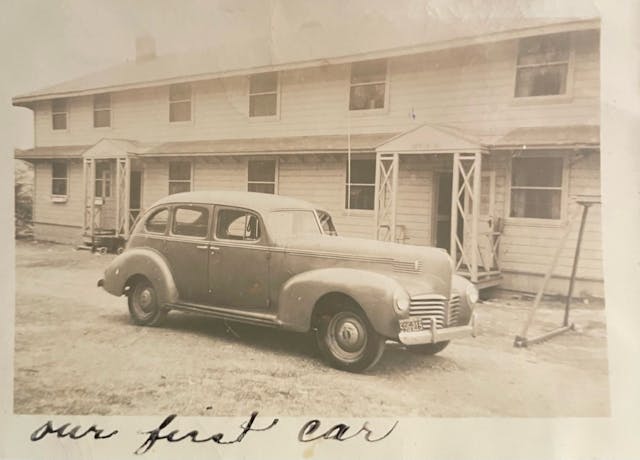
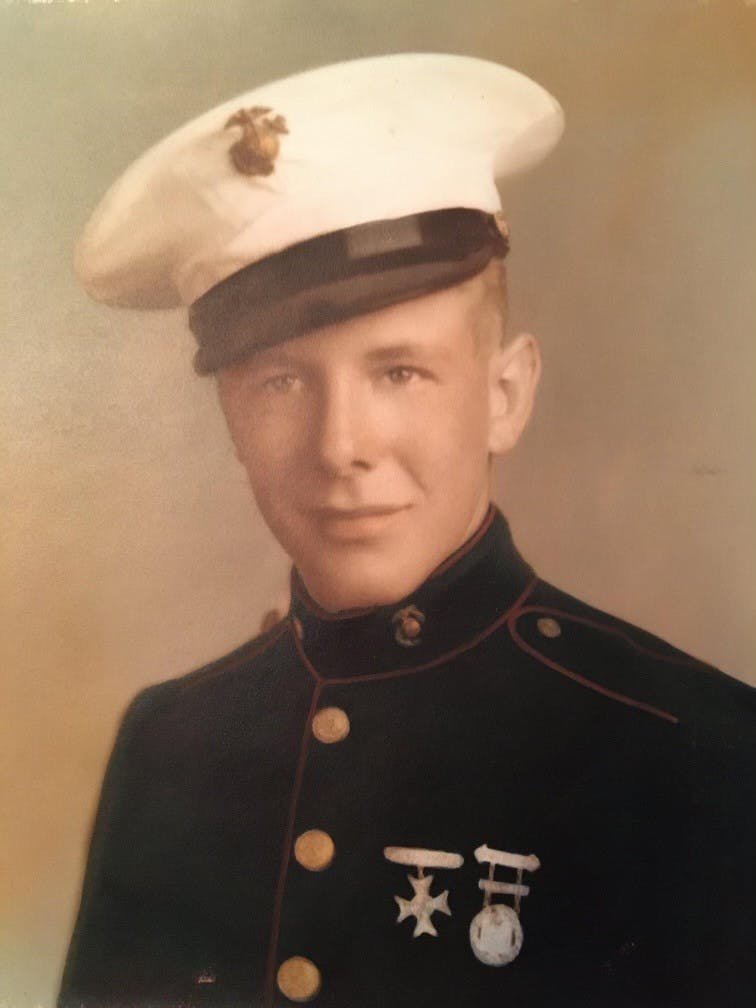
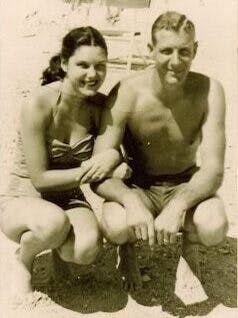
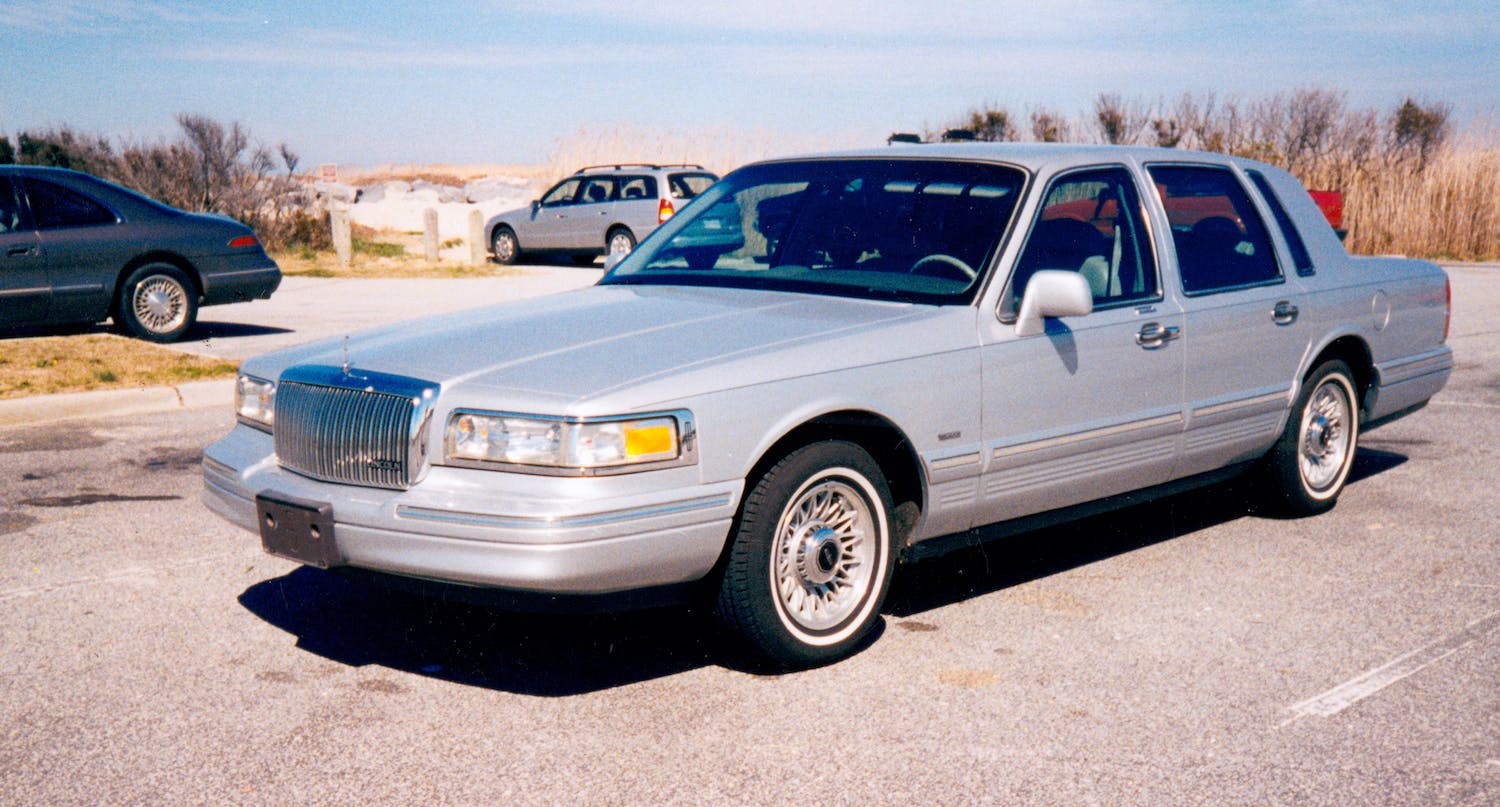
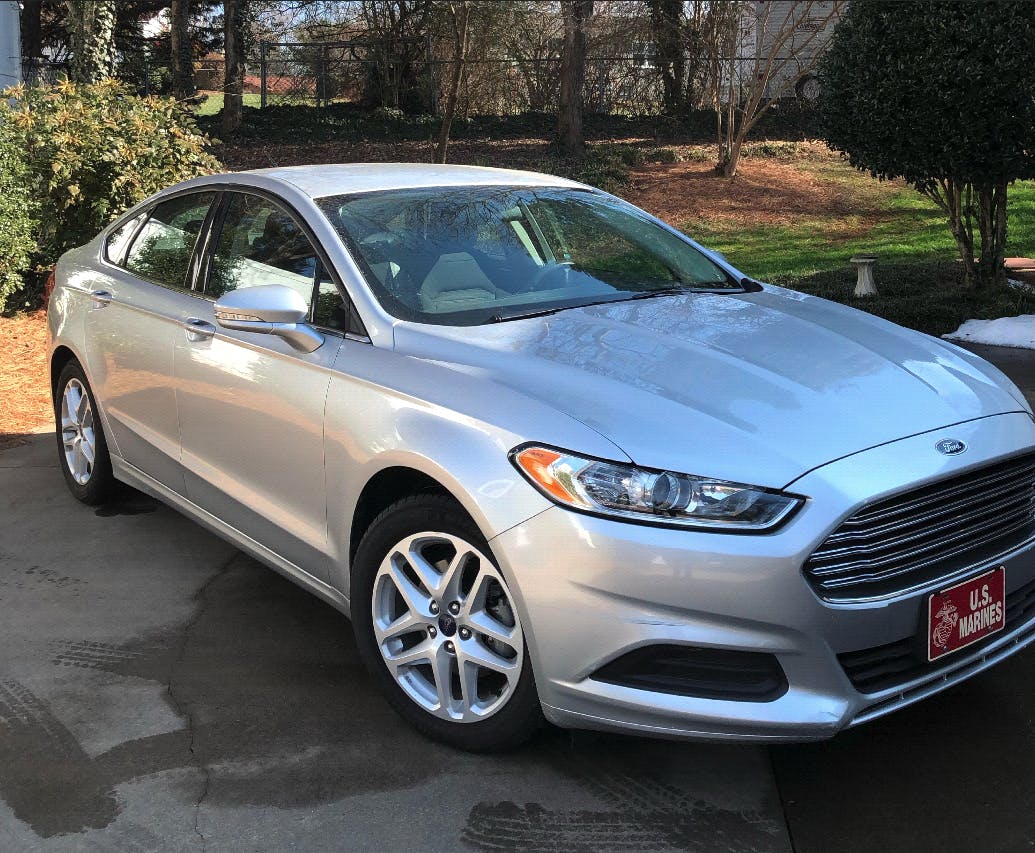
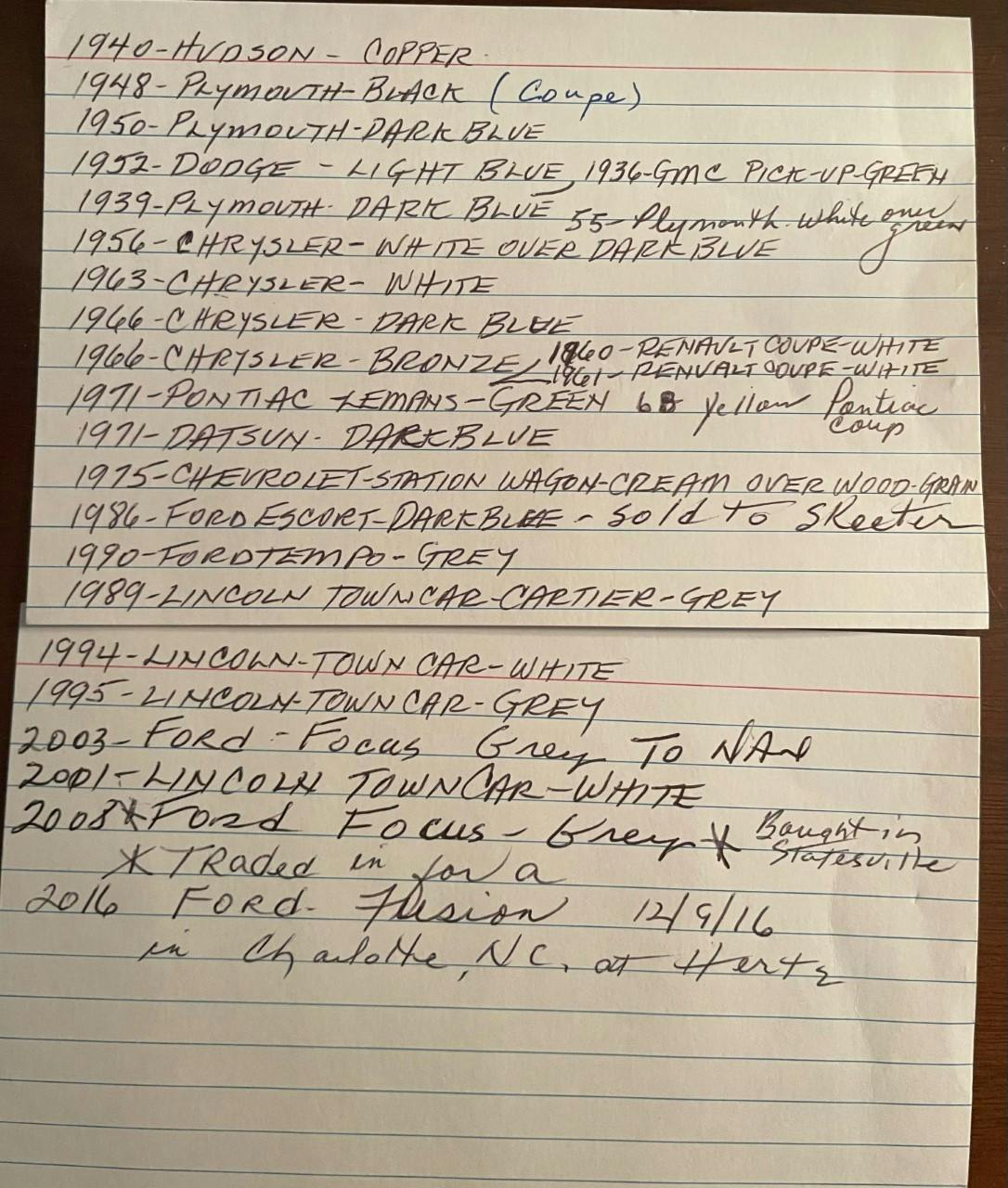
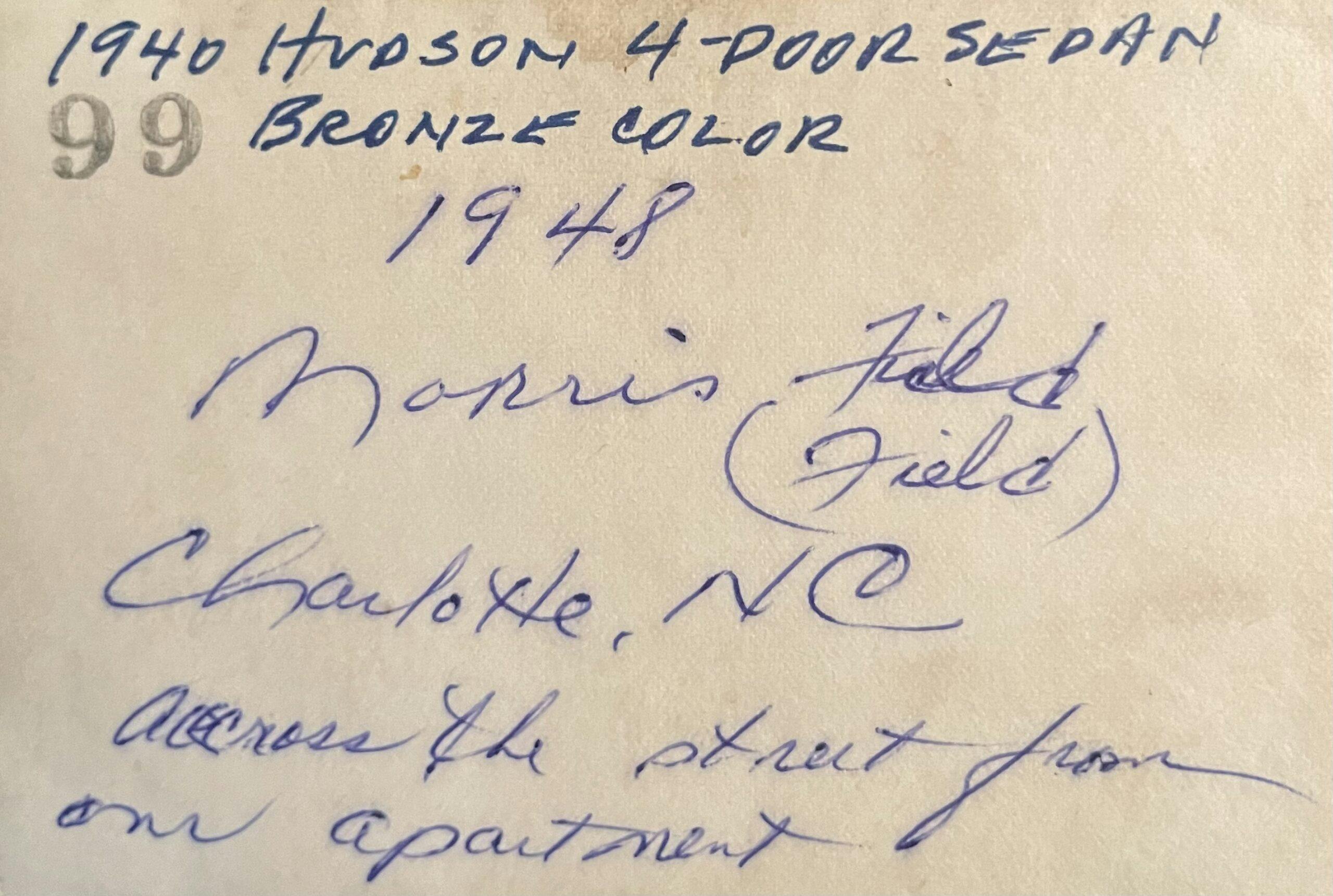

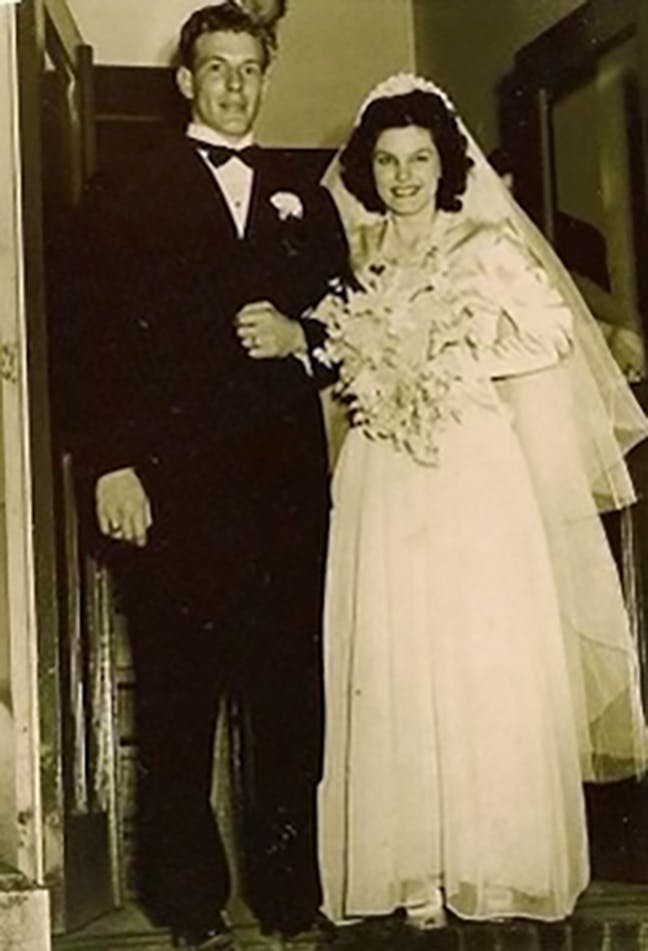



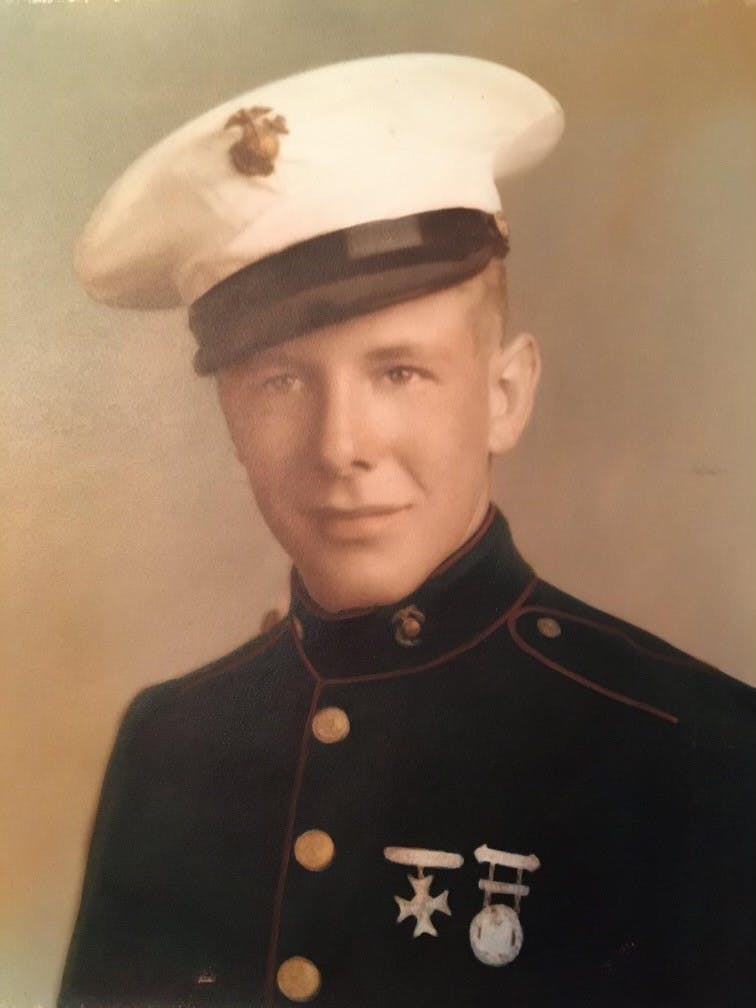




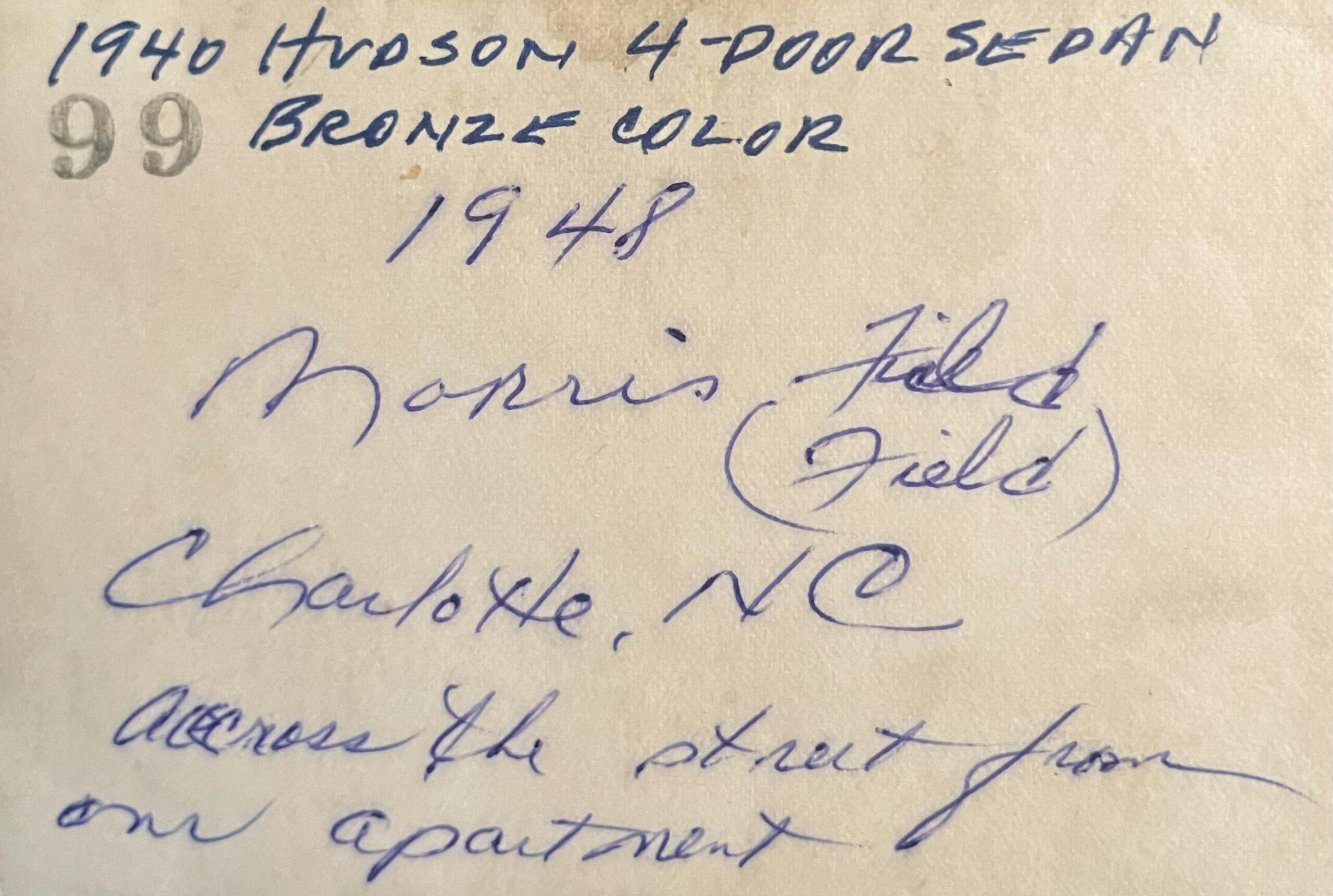




After reading all these comments I am left fiberglasted.
Whether to use them or not.
Frank, if you are selling a vehicle outright it may be great to use them. If you are going to replace with another vehicle a dealer may save you tax on the trade value they offer. I would not purchase anything from Carvana.
It does not cost anything to get an offer from them to see if it works for you.
I tried very hard to buy a vehicle from Carvana. The wife wanted a Flex and, although the pricing was a bit high, they had quite a few to choose from. That’s where the issues started. It seems that if you don’t finance through them, it becomes very difficult to buy. After too much red tape and a reluctant credit union who didn’t trust this sort of transaction, we looked closeby and found a much better and newer vehicle for less $$.
So, I tend to believe the buy / repossess / sell again scenario.
In 2016 we bought a new Equinox to replace my wife’s aging Trailblazer. She hated the car from day one and wanted to return to her TB. Fortunately we had kept the TB at our ‘up north’ house so her desires could be met. In November 2021 I ordered a new Chevrolet pickup and tried to pawn the Equinox off on the dealer. Their offer was $14,500. Carvana offered us $23,400. (Just shy of the original purchase price.) You know which way we went. The $8,900 difference more than made up for the sales tax differential on the new truck. Even more so when due to several screwups by our dealer we ended up canceling with them and buying the truck from another dealer near our second house and out of state. The deal with Carvana was seamless, a rep came to the house, glanced at the car, checked the VIN and the money was transferred in minutes. They sent a flatbed out a few hours later, loaded it up and drove away. Have no idea what they got for it and I really don’t care!
Thank you, Jimmy, and to all veterans. My Dad served in the US Navy during WWII. I know the feeling when you need to tell your Dad its time to turn in the keys. Dad FINALLY had a Cadillac (OK, it was a Catera, but is was a Cadillac). Two years in and 2 accidents later it was time. Fortunately, Dad was OK with it. That was before Carvana was around. A little more than a year ago I sold my 2010 Chrysler to a dealer who gave me almost $1000 more than Carvana offered. According to CARFAX it was titled 3 times going to various dealers and finally to a private owner in Texas with a sale price of almost $4,000 less than I sold it for. Do I feel bad…No I don’t. It’s only business.
I will never complain about making money selling a car to Carvana, or similar.
This past year has been nuts in the car market. My vehicle when I moved to Texas was a 2016 Ram 1500 Crew Cab 4×4. It was a base V6 but upper mid trim with heated seats and navigation to name a few. I bought it used in 2018 with 15,000 miles for $26,500. It was paid for. I kept hearing how valuable trucks were, and was hating the gas mileage, even with a V6. So, with 98,000 miles on the clock I looked into trading it for a 2019 Chrysler 300 Limited with 42k miles on Shift. The car was listed at 24,500, a good price in the current market for a car still under the 6/60 power train warranty. I inspected the car and it was just fine, looked great. So, I asked to see what the deal was. I figured on getting a great trade value around 20,000. Nope… they came back with a trade in value of $25,700.00…. yup, more than the car. After the dealer fees, they cut me a check for $700 and gave me the title to the 2019 Chrysler. Yikes. Then I watched the truck on their site. It finally dropped off the site at a price of $25,500. Stuff like that are going to kill these on-line dealers like Shift and Carvana real quick.
Very nice piece, a well-done story that introduced us to the family. Thank you
Love Jimmy’s list of cars….I do that too!